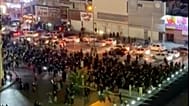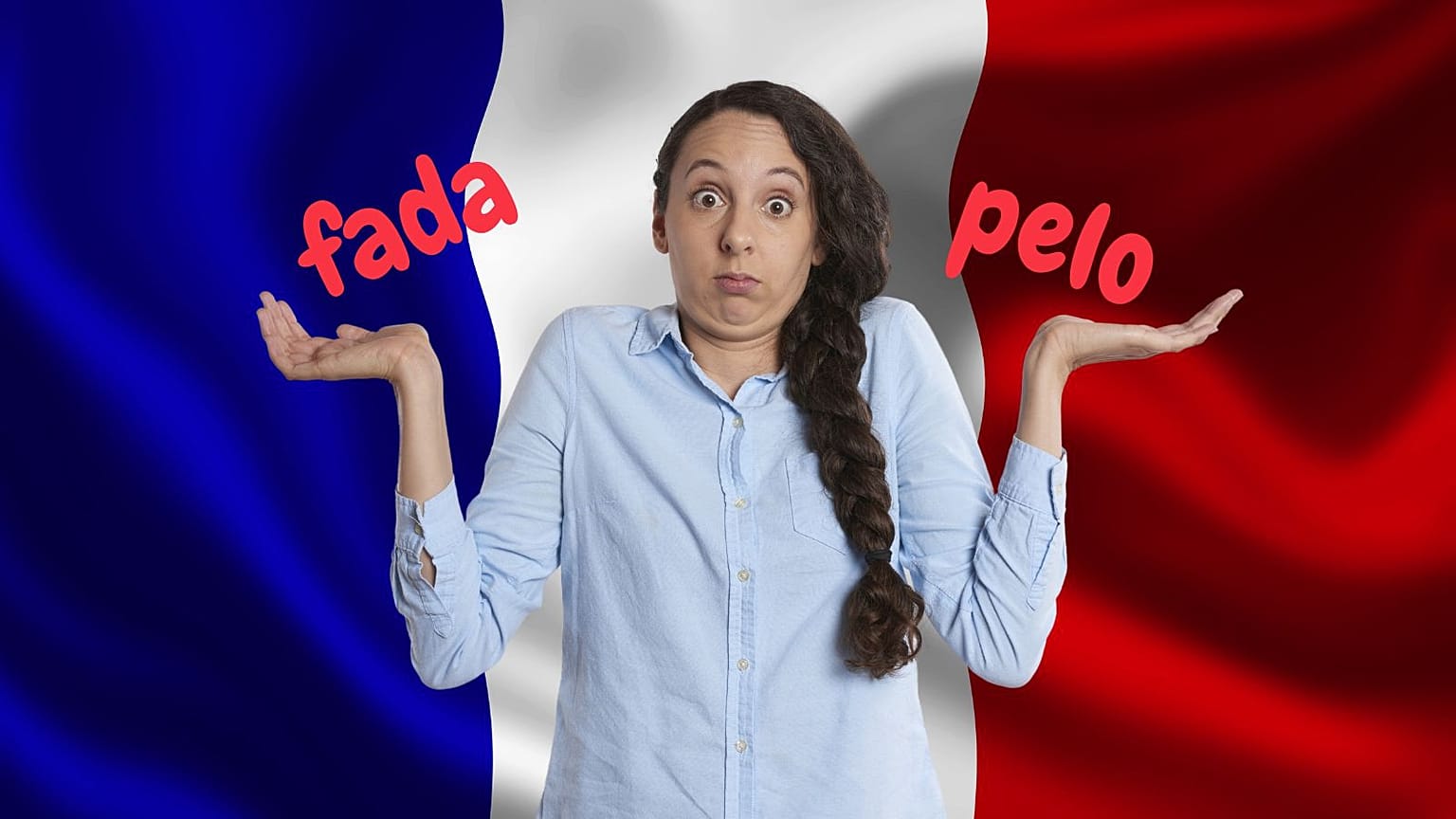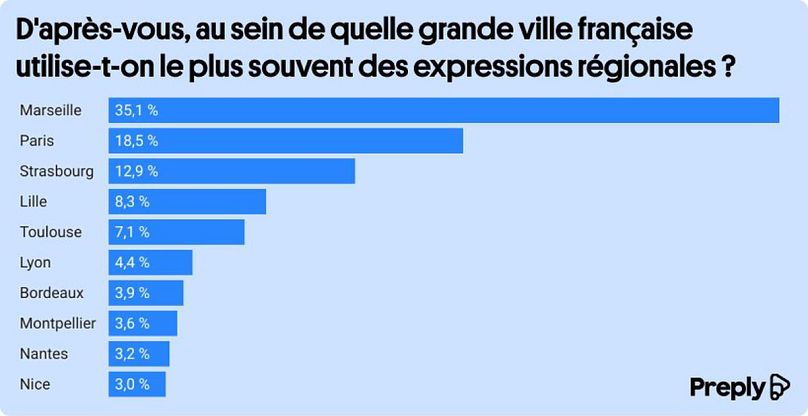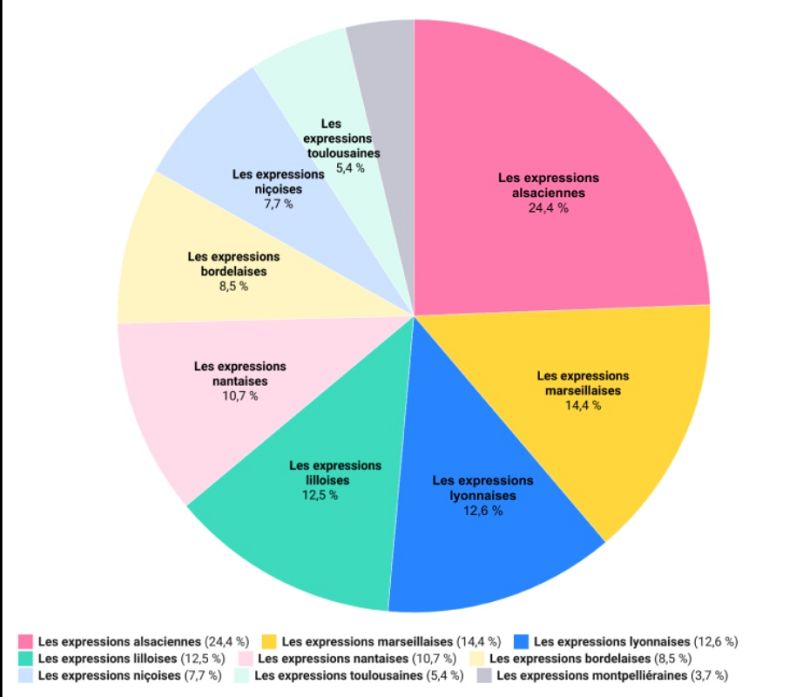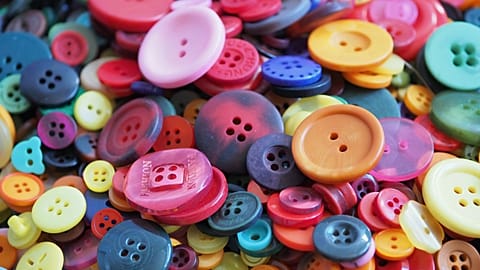Here are the most frequently used regional terms that you won’t have learned in French class - and you may find useful for your next trip.
Thinking of heading to France for Easter or in the near future for a holiday?
While you may find that the French are surprisingly accommodating when it comes to helping out in English, despite their reputation for being stuck up, there are still regional expressions that pop up all too frequently – and will leave you scratching your head.
Fear not, help is at hand.
According to a recent survey examining the use of regional languages, carried out by online language learning website Preply, even the French are somewhat bemused by the sheer amount of different dialects around.
When 1,500 people were asked "In your opinion, how many languages are officially recognised as languages of France", over 92% of respondents gave the wrong answer.
52% thought there were 8; 28% answered 17; 12% answered 36; and only 8% of respondents got the right answer - which is a whopping 75.
The Ministry of Culture states that France “has a rich linguistic heritage” and that no fewer than 75 languages are recognised as "languages of France".
“This concept covers three distinct categories: regional languages traditionally spoken in a part of the country; six non-territorial languages born of immigration, with no geographical links to the territory of the Republic and spoken by French citizens for several generations; and French sign language.”
So, in order to give you a leg up the next time you’re visiting France, here are the 10 most popular and frequently used regional terms that you won’t have learned in French class, and that the French are most familiar with:
(NB: the translations are not meant to be literal – don't bother writing in)
1) Fada
From: Marseille
Meaning: Mad
Example: “Tu es fada!" - a friendly way of saying that you’re nuttier than a squirrel’s diaper.
2) Gavé
From: Bordeaux
Meaning: Stuffed – as in, fed to excess
Example: “Je me suis gavé et je n’ai plus de place pour le dessert.” - essentially: "Hold the desert, I may throw up on you if you’re not careful."
3) Emboucaner
From: Marseille
Meaning: Messing with someone / doing someone’s head in
Example: “Arrête de m’emboucaner avec tes histoires de fadas!” (cheeky callback to the top word of the list) – meaning: "Stop messing with me with your crazy stories."
4) Minot
From: Marseille
Meaning: Child or kid
Example: “Il est minion ton minot” - "Your kid’s cute as buttons."
5) Tarpin
From: Marseille
Meaning: A lot – often used as a synonym for 'very'
Example: “Elle est tarpin sympa!” - "She's so nice!"
6) Biloute
From: Lille
Meaning: A man – usually referring to a male friend. Be warry though, it can also be used to denote a man’s penis. However, it’s rarely used in a negative or insulting way, unlike “cock” in English.
Example: "Tcho'Bilout'!" - "Hey, buddy!"
7) Pelo
From: Lyon
Meaning: A term used to refer to a guy, a bloke, a fella... If a teenager says "mon pelo", they mean their boyfriend – akin to "mon mec" or "mon petit ami".
Example: "Après avoir vu sa prestation aux Oscars, Ryan Gosling est mon pelo" – "After his performance at the Oscars, Ryan Gosling needs a restraining order out on me...uh, I mean, is my man."
8) Dégun
From: Marseille
Meaning: Nothing, nobody, zero
Example: “Craint dégun” - "Fear no-one"
9) Cagnard
From: Montpellier
Meaning: Sun – usually referring to scorching sunshine
Example: "Evitez le sport et efforts intenses en plein cagnard" – "Don't overdo it under the burning star at the heart of our solar system lest the anger of the rays mess you up."
10) Pochon
From: Bordeaux
Meaning: A plastic bag, sachet or pouch
Example: “Dans mon pochon, tu trouvera six oeufs, de la crême fraiche, une pate brisée, des lardons et du fromage rapé” - “In my bag, you’ll find everything you need for a quiche, because quiches are lovely, yum yum yum.”
As you can tell, Marseille dominates the list of cities that champion regional expressions. Renowned for being a veritable hotbed of original terms, the city has a rich linguistic heritage - and a very distinctive accent. Their slang travels.
During the same survey, it was also revealed which French regional expressions are deemed to be the most ridiculous, and Marseille nearly topped that list too. However, the city was pipped to the post by Alsace, which does not feature in the top 10 of most frequently used regional terms.
Alsatian expressions like “schluck” (gulp), “schmoutz” (kiss), “schlopps” (slippers), “être schlass” (to be tired) and “schatz” (treasure / sweetie) were revealed to be the silliest to French ears.
Marseille came in second just ahead of Lyon, with the exact same five words that made the top 10.
While delightful, our vote for the silliest goes to Lille and their “Biloute”, and we’re big fans of “schatz” here at Euronews Culture. Maybe we’re just a bit fada and need to get out of the office to indulge in a wee bit more cagnard.


